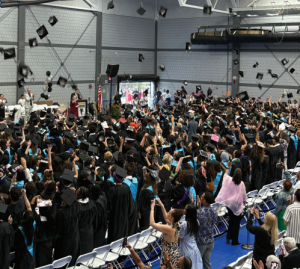How Stereotypes Are Harmful for Male Sexual Assault Survivors
March 30, 2021
Rampant invalidation of sexual assault allegations pervades the responses to sexual assault cases. In light of Sexual Assault Awareness Month in April, it should be acknowledged that victims of sexual assault continue to not be taken seriously upon taking the vulnerable step to share their stories. However, we should also scrutinize the issue from an alternative gender perspective. As hard as it is for all survivors to speak up about their experience, male victims tend to be overlooked because of societal stereotypes, stigma, and silence around male sexual abuse. In a patriarchal society where males are supposed to have power, male survivors may neglect and invalidate their feelings, feel embarrassment or shame, and keep quiet about their sexual assault.
Statistically, sexual violence and assault affects mostly women; however, male victims are more common than we think. According to the National Sexual Violence Resource Center, about 11.7% of men have experienced unwanted sexual contact. Research shows that 1 in 6 men have been sexually assaulted or abused. However, many believe this statistic is an underestimate because of the harsh reality that men are less likely to report their assault. This observation is supported by the research studies by the National Service Agencies showing that only 16% of men with documented histories of sexual abuse admitted themselves to have been sexually abused, while 64% of women acknowledged the fact in the same study. Nevertheless, about 63% of all sexual assaults go unreported.
“Men tend to come out less because there isn’t as much of a safe space for them … People are more likely to assume a man is lying about [their sexual assault],” Christina Korn ’24 told the Register Forum, “there should be more acceptance for men who have been sexually assaulted so that they don’t have to suffer in silence.”
Popular and normative social values tend to emphasize the gender roles that boys are supposed to be physically stronger and therefore cannot be physically violated. Based on a study concerning gender attitudes among 10- to 14-year-olds by Global Early Adolescent Study, boys are taught that they should be tough and sexually dominant. As a result, no matter how much the gender equality agenda is advocated, the education system still reinforces these stereotypes. Dania Rustom ’23 added, “Boys/men are always taught, through the media, that they shouldn’t let these events affect them and that they need to be tough and move on. This alone should tell us that these societal assumptions and stereotypes must be altered to provide a safe space for victims of both genders to speak out about their experience.”
Aaron Stone, a sergeant major in the US Army, was groomed and raped by his high school teacher at the age of 15. “Aaron will also tell you that he chooses the word ‘rape’ deliberately because it conveys the reality of what was done to him … Like virtually all abused children, he internalized the shame … [In 2010], he sought help from the Army’s behavioral health program, and for the first time in his life he disclosed what had happened to him as a child. It was an act of liberation.” Stone’s position in the Army creates a greater expectations for strong, tough, and brave behavior, yet, he was able to become vulnerable and tell his story which can be found on the 1in6 website: a non-profit organization that supports and provides resources for male sexual assault survivors.
There have been many viral movements on social media platforms created to support sexual assault survivors. One, in particular was #MeToo, which was made trending on Twitter by Alyssa Milano, one of the actresses who accused producer Harvey Weinstein of sexual assault. In her Tweet, she stated, “If you’ve been sexually harassed or assaulted[,] write ‘me too’ as a reply to this tweet.” Many survivors responded with their stories globally, raising awareness and coming forward with their experiences. However, many male victims felt left out, and while admiring that women are speaking out, they feared that they would not get the same amount of empathy from the public. Chris Brown, a popular rapper and survivor of sexual assault commented, “Because the movement happened to get its start with women only, in a way it furthers my loneliness as a past victim.”
Ultimately, any support for male victims comes from listening to their stories, validating their feelings, expressing concern, and providing resources for them. Masato Hall ’23 suggested, “Male sexual assault is significantly less talked about because of the lack of awareness around it. Personally, I have not heard of men getting sexually assaulted … I think being able to understand how bad the current situation is and raising awareness will make all the difference in supporting victims of sexual assault.”
Resources:
National Sexual Assault Hotline – Call 800-656-HOPE
National Sexual Violence Resource Center
National Organization for Victim Assistance









